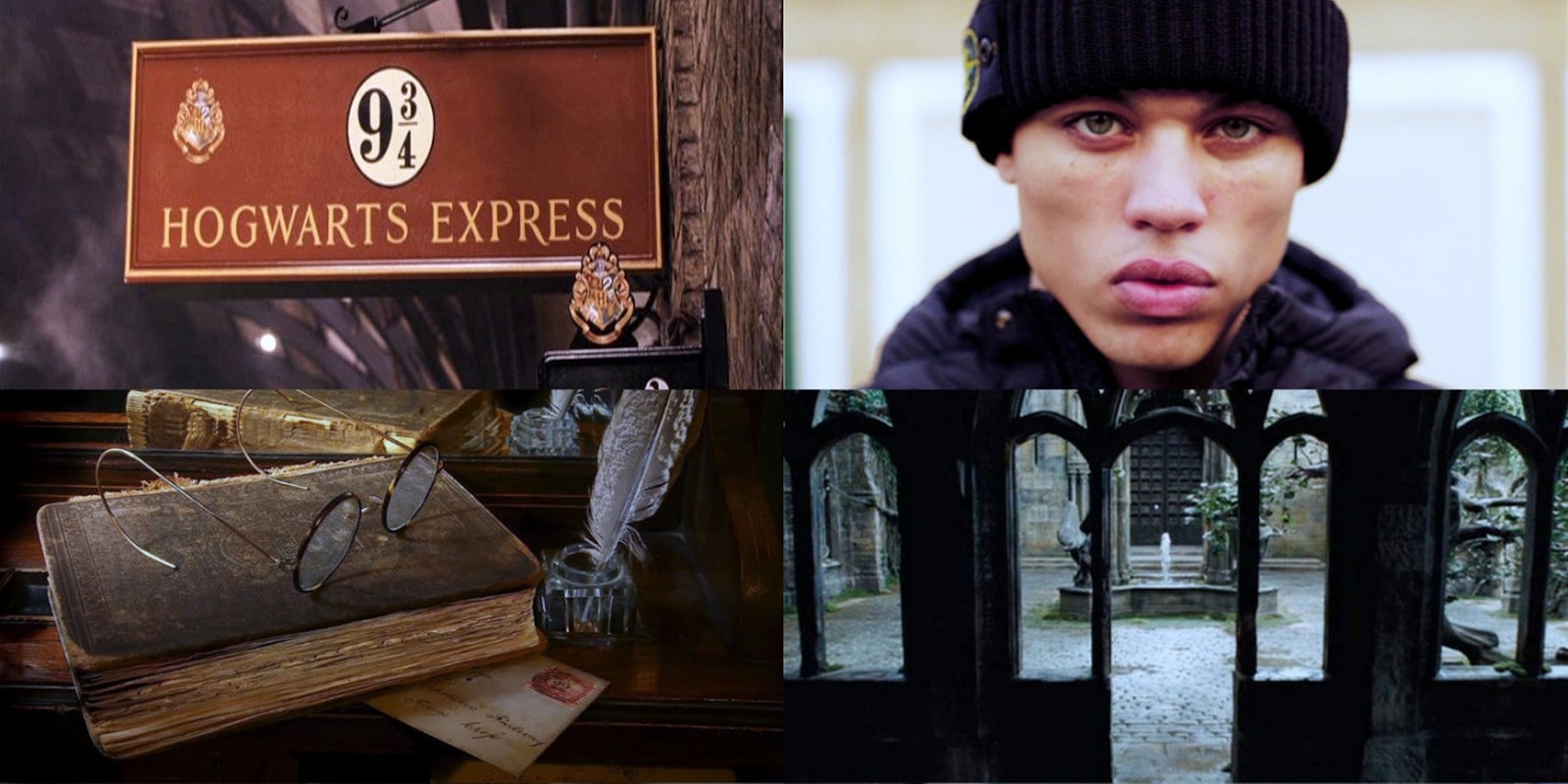That trend you’re seeing of casting black actors to play your favorite fantasy characters? That’s not new, though the longstanding fandom practice of racebending might finally have gone mainstream thanks to J.K. Rowling.
This week’s news that the role of Hermione in the West End stage production of Harry Potter and the Cursed Child will be going to a black actor turned heads across the Internet. Rowling’s subsequent thumbs-up to the idea got even more mainstream media attention, and sparked a wave of rejoicing in the Harry Potter fandom.
Since Monday evening, fans and members of the black community on Twitter have been trending #BlackHarryPotter, showcasing an endless stream of celebrities and talented black actors who would make perfect additions to the Wizarding World—in roles for which black actors in all likelihood were never even considered.
https://twitter.com/McMeatymeat/status/679181096144265216
https://twitter.com/Mariah_Cara/status/679240303447023616
#BlackHarryPotter #HermioneGranger (Y’all know Amandla is already a real life Hermione, mad props to her) pic.twitter.com/6SZumnhdeh
— Mari. (@mariwritesss) December 22, 2015
https://twitter.com/JaysAndLucheses/status/679191891863166976
https://twitter.com/byisikalu/status/679277121307607040
FKA Twigs – Luna Lovegood (She doesn’t act but look wise it’s spot on) #BlackHarryPotter pic.twitter.com/4KSubNphPG
— POC Dream Casts (@POCDREAMCAST) December 22, 2015
#BlackHarryPotter Sophie Okonedo for Minerva McGonagall; Tahj Mowry for Neville Longbottom. pic.twitter.com/VMLaKcmCyD
— Lara Willard (@larathelark) December 22, 2015
https://twitter.com/lunarnomad/status/679152804989026304
This is all awesome. And like many awesome things that seem to happen out of the blue on the Internet, fandom was doing it first.
The word “racebending” refers to a couple of different things, depending on the context. In fandom these days, it’s generally used to mean the super-common fan practice of hypothetically changing a character’s race. This is usually done visually, and there are an endless number of fandom communities devoted to it. This practice pre-dates Tumblr, but Tumblr is largely the current home of racebending culture on the Internet. For example, long before John Boyega was cast as Finn in The Force Awakens, HP fans had him pegged as their racebent Harry:
In Hollywood and mainstream comics culture, cries for representation often go unheeded, but in fandom, making room for diversity is often taken for granted:
Tumblrs like fyeahracebending, fyeahfancasting, racebendingharrypotter, and many, many more do the work of spreading diversity in both general and particular fandom communities. And Tumblr fanartists do the rest:
While this is all undoubtedly cool as a fan practice, there’s a serious reason behind all the fun people are having—the obvious dearth of main roles for characters of color. In fact, the word “racebending” isn’t always used positively, but rather as a way to describe the Hollywood practice of switching a character’s ethnic background in order to allow them to be played by a white actor. It has as its origin a controversial incident of erasure that led to an ongoing fan activist movement—the whitewashing of The Last Airbender.
M. Night Shyamalan’s notorious 2010 flop failed as an adaptation of the beloved Nickelodeon TV series Avatar—in part because the production ignored the show’s complex and thoughtful racial diversity, opting instead to cast white actors as the lead roles against a background of ethnic extras. The outraged Avatar fandom labeled this practice “racebending,” a term spawned from the Avatar universe’s practice of magically “bending” elements. Fans spent years protesting casting calls, shoots, and later the movie itself. As a byproduct of the controversy, the media watchdog site Racebending was formed to track and call out incidents of racebending in the media.
Fans have played an important, and increasingly vocal, role in popularizing calls for diversity within geek culture. Yet those cries rarely result in the a response like the casting of actress Noma Dumezweni as Hermione. Now, the overwhelmingly positive reaction, along with Rowling’s endorsement, have given mainstream audiences and fans the opportunity to learn about the concept of racebending.
But for Potterheads who’ve been following the mostly white casting of Rowling’s Potter prequel Fantastic Beasts know, it’s one thing to say you support diversity, another to put it into the casting of a movie watched by millions around the world. While it’s nice that many thousands of people will see Dumezweni play the role on stage, there’s no guarantee that other directors will follow that casting precedent later.
Racebending’s Mike Le told the Daily Dot in an email that he was ambivalent about the impact Rowling’s words and the casting might have on the overall push to diversify media—but he wants to stay on the bright side:
I’m honestly not sure if the attention being paid to race in HP will have a positive impact on media representation. I think the casting is a positive step forward. But typically the coverage of casting like this by the wider media is poor and the reaction by mainstream fans is mixed at best.
Rather than focusing on the mainstream reaction, I prefer to focus on the accomplishment. The casting opens doors. What people say about it and how they react is secondary to the fact that a socially conscious subset of fandom, supported by a socially conscious creator, has succeeded in getting a prominent role cast in a novel, diverse way.
Le echoes a thought many fans have expressed since “Black Hermione” took over the Internet: the belief that this casting couldn’t have happened without fans expressing their commitment to diversity. On Twitter, fans have spent years making their views on the need for representation in the Harry Potter ‘verse known to Rowling and her creative team.
And while we’re still a long way from seeing a fully diverse on-screen Harry Potter cast, you can thank the Harry Potter fandom for bringing you black Hermione—long before it was mainstream.
Illustration by damilyn/Tumblr


